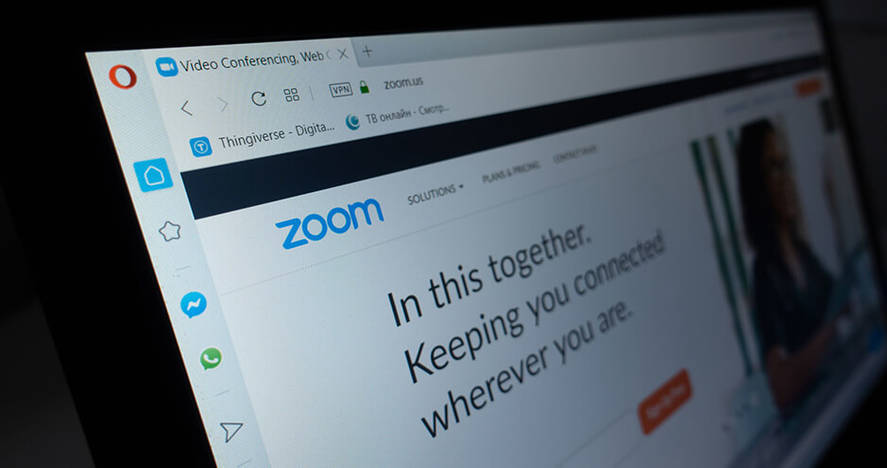Teaching in a New (COVID-19) Age
Since the French government declared a national confinement period on March 16, HEC Paris has invested heavily in distance teaching for its 4,500 students. In the three weeks before the break, the school generated over 700 classes, workshops and online seminars to maintain its unique pedigree of teaching. This quiet revolution has mobilized the entire teaching staff, as well as the school’s IT and Digital teams.

Remote teaching, distance learning, technology-enabled education, flipped classrooms, digital dematerialization of interactions. Just a few concepts coined for distance teaching in higher education, after a huge swathe of the world’s student population was isolated in response to the COVID-19 health pandemic. It’s what senior reporter Goldie Blumenstyk claims could be the “Black Swan” moment for higher education. These weeks, she writes, are “more of a catalyst for online education and other ed-tech tools than decades of punditry.”
For leading academics at Jouy-en-Josas, the benefits of digital blended teaching at HEC Paris are no novelty. “Since 2014, we have been working on designing fully online programs along with enhanced blended learning classes to meet a greater need for tailored education,” explains Ashraf Akbar, the school’s Senior Digital Learning Manager. Alongside the Associate Dean for Pre-experience Programs, Marc Vanhuele, Akbar helped design one of the world’s first online Master degrees, in innovation and entrepreneurship, for example.
Leap into the Future
But remote teaching activities have taken a quantum leap since early-March. That was when the Chief Digital Officer at HEC Paris, Robin Ajdari, anticipating the national lockdown, gathered together a small HEC team of specialists dedicated to making all its programs available for its students in the MiM / Grande Ecole Program, MBA, Exed and PhD. “In the first phase of this crisis, before any confinement, you have to remember that uncertainty was high,” says one of the team members, Anne Michaut, who is also Associate Dean for Education Track & Pedagogy and LVMH Chair Director at the school. “We had a constantly changing context, related to governmental decisions, but we did not know exactly which course to take, or when: face to face classes, hybrid, or full online, all options were still open and adapted solutions were envisioned.”
The March decision on a relative lockdown, however, made fully online teaching the only way to operate. HEC Digital Program Manager Adrien Painturier says he invested heart and soul into the project, as part of the school’s Pedagogical Continuity team. “We invested all our energy and hard work for what we believed to be the greater good of the HEC Paris community. To me personally, that in itself has really switched on a ray of sunshine at the end of the rather dark and long tunnel society is currently traveling through.”
A SWAT Team for the Occasion
The team contacted around 200 professors for diagnostic tests to guarantee their ease with technology like Zoom. “We called it the Zoom SWAT team,” relates Ashraf Akbar. “They were connecting to each Zoom teaching session before the beginning of the class and talking to professors to ensure all was up and working. After a fortnight of remote teaching the main IT service took over.”
Thanks to Akbar’s guidance, the academics learnt to navigate synchronous teaching sessions, exploit the flipped classroom strategy, use breakout rooms, polling strategies to activate the students, the use of the One Minute Paper technique, and so on.
The learners also had to adapt greater responsibility: “Our charismatic presence and storytelling talent count for less,” admits Kristine de Valck, Associate Dean and PhD Director at HEC Paris. She is one of the first professors to have adopted digital teaching when she created an iTunesU course 11 years ago. “Our students need to accept that it requires harder work than the pleasurable experience of letting your boat rock on the waves of a good lecture. They need to get their feet wet, get their hands dirty, put in the real effort of hoisting sails, otherwise online courses remain flat like a lake on a windless day.”
Courses and Webinars
Thankfully, the results have been an indisputable success. Thomas Astebro teaches entrepreneurship and has seen online course involvement increase between 200-500% in the space of weeks. “Traditional universities will see much stronger competition from online programs in the future, much due to the lockdown,” he claims. Astebro was the Founding Academic Director for the first three years of OMIE Master Degree and is a recognized specialist in adult online learning. For him, there can be no return to normal teaching after the health crisis: “Online learning will be the new normal and social interactions amongst students will continue to be important after the crisis is over.”
Concomitant to the teaching, HEC Paris has instigated a webinar series focused on the impact of the COVID-19 crisis, which is attracting thousands of viewers - none more so than Olivier Sibony’s April 7 exposé on cognitive bias and decision making during the pandemic (over 100,000 views). Equally stimulating are the webinars by Laurence Lehmann-Ortega on reinventing the business model; and Jeremy Ghez’ presentation asking if the crisis will lead to “economic decoupling and deglobalization”, a topic he develops in Forbes magazine. And many more.
50-60 Virtual Zoom Classes per Day
While it is too early to see how these changes will articulate themselves after the return to normal, senior staff insist that the vast majority of their colleagues are positively surprised by the level of feedback and interaction they are enjoying during their online seminars. The unprecedented experiences have spilt over into the HEC Paris research department. The school’s Associate Dean for Research, Christophe Pérignon, believes the crisis is forcing the entire community to reinvent the approach to, and communication about, research. “The research community has been talking for several years about moving some of our activities online in order to limit air travel to reduce carbon emissions. Now, HEC Paris researchers are routinely having both their internal and external research seminars online, whilst some colleagues are currently working on online research conferences.”
With the French authorities confirming that all higher education institutions are closing their on-campus academic programs until September 2020, the switch to distance teaching is becoming ever more crucial. “That is, in part, a (government) decision made after seeing the switch to distance learning has worked well and feedback on the learning experience has been generally very positive,” notes HEC Paris Dean Peter Todd. The inevitable teething problems have been overcome and a daily rhythm of 50-60 virtual Zoom classes per day will likely resume after the exam period, according to Adrien Painturier. “This crisis triggered tremendous advances, revolutions or reinventions in the ways of working of so many people. And these changes are ongoing, acting as a “time accelerator” for professors at HEC and beyond.”
Future Impact
At the time of writing, his colleague Ashraf Akbar is leading a project to put in place a fully automated proctoring examination system called Proctorio, which is based on some advances in AI. This could also see its way into long-term reflection on learning at HEC Paris. “After this crisis management, I think we will have a unique opportunity to review the whole learning ecosystem,” underlines Anne Michaut. “We will have to re-think the pedagogical objectives of each tool in the learning journey of our participants.”
For many, this reassessment is designed to conceive a holistic experience that optimizes the learning outcome. “I am convinced that all these opportunities will coexist with different functions in the future learning ecosystem of our participants,” continues Michaut. “One thing is indisputable: this period is allowing us to make incredible progress in mastering technologies that were not yet widespread amongst faculty members and program managers.”



